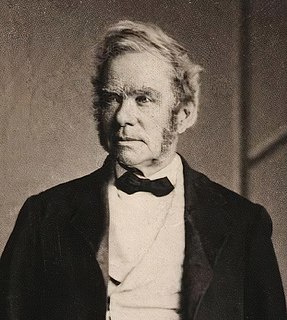A Quote by Murray Gell-Mann
The chaos can act as a magnifier of quantum fluctuations so that they can produce sizable effects in the world around us. But we know that that can happen often.
Related Quotes
Quantum events have a way of just happening, without any cause, as when a radioactive atom decays at a random time. Even the quantum vacuum is not an inert void, but is boiling with quantum fluctuations. In our macroscopic world, we are used to energy conservation, but in the quantum realm this holds only on average. Energy fluctuations out of nothing create short-lived particle-antiparticle pairs, which is why the vacuum is not emptiness but a sea of transient particles. An uncaused beginning, even out of nothing, for spacetime is no great leap of the imagination.
What I should like to find is a crime the effects of which would be perpetual, even when I myself do not act, so that there would not be a single moment of my life even when I were asleep, when I was not the cause of some chaos, a chaos of such proportions that it would provoke a general corruption or a distubance so formal that even after my death its effects would still be felt.
I have an abiding interest in how ordinary people produce knowledge, and what it means for individuals to know the world. I thought I'd be a theoretical physicist because I love physicists' views of the world - I find general relativity and quantum theory thrilling - but I have always felt uneasy with the idea of an Ultimate Truth. One of the functions of science is to help us instrumentally; it helps us to build things like microchips and GPS satellites. But another function of science in the modern world is to help us feel "at home in the universe".
Physicists often quote from T. H. White's epic novel The Once and Future King, where a society of ants declares, "Everything not forbidden is compulsory." In other words, if there isn't a basic principle of physics forbidding time travel, then time travel is necessarily a physical possibility. (The reason for this is the uncertainty principle. Unless something is forbidden, quantum effects and fluctuations will eventually make it possible if we wait long enough. Thus, unless there is a law forbidding it, it will eventually occur.)
Such platitudes as "If you believe it, it will happen," "If you give 100%, you get 100%," "Good things happen to good people" people utter when we don't know what else to say. There's comfort in platitudes, and every so often they're accurate, but mainly they're hollow words. It's a sign of how little we're able to directly address the world around us. The language of the times reveals our avoidance.
The fear of freedom is strong in us. We call it chaos or anarchy, and the words are threatening. We live in a true chaos of contradicting authorities, an age of conformism without community, of proximity without communication. We could only fear chaos if we imagined that it was unknown to us, but in fact we know it very well.


































